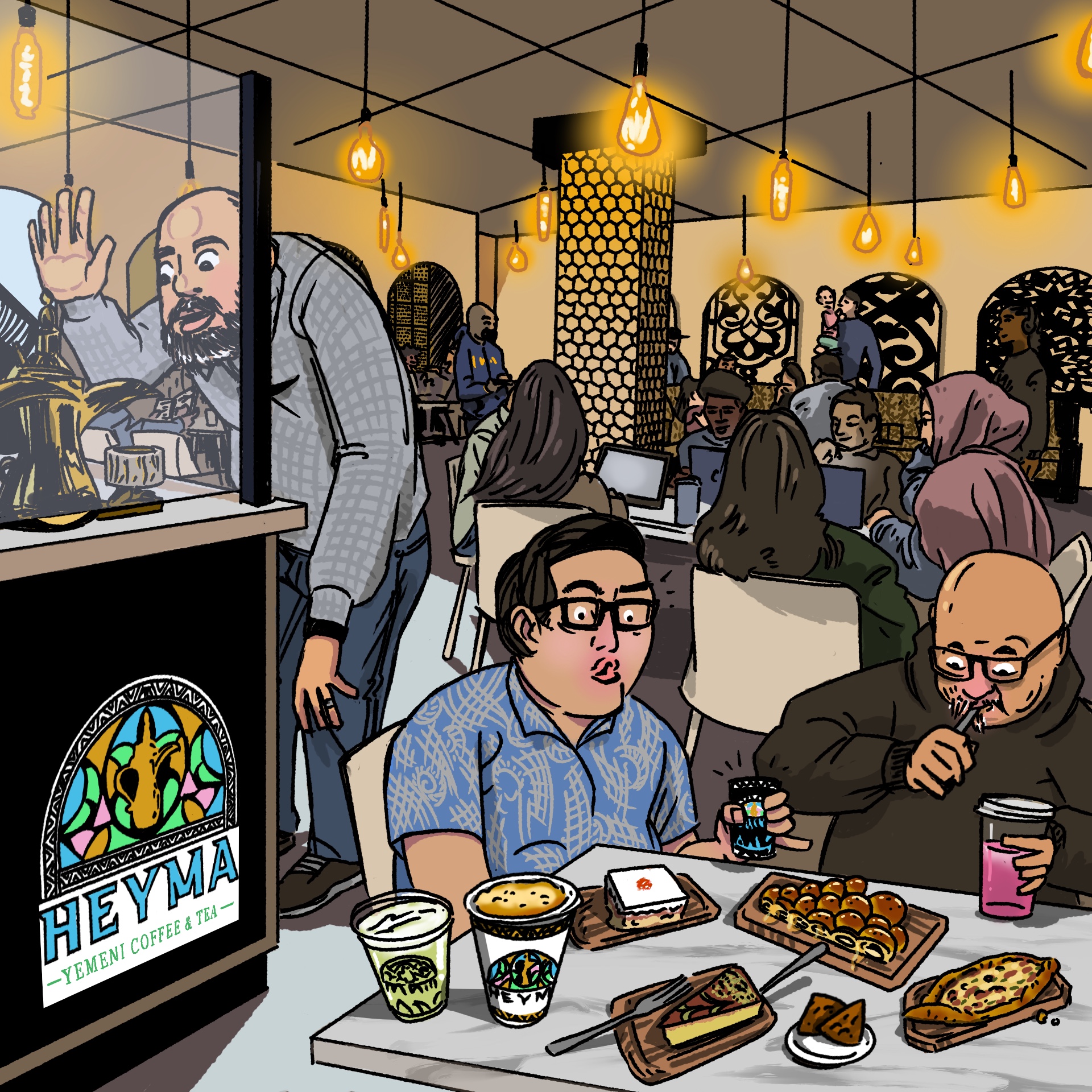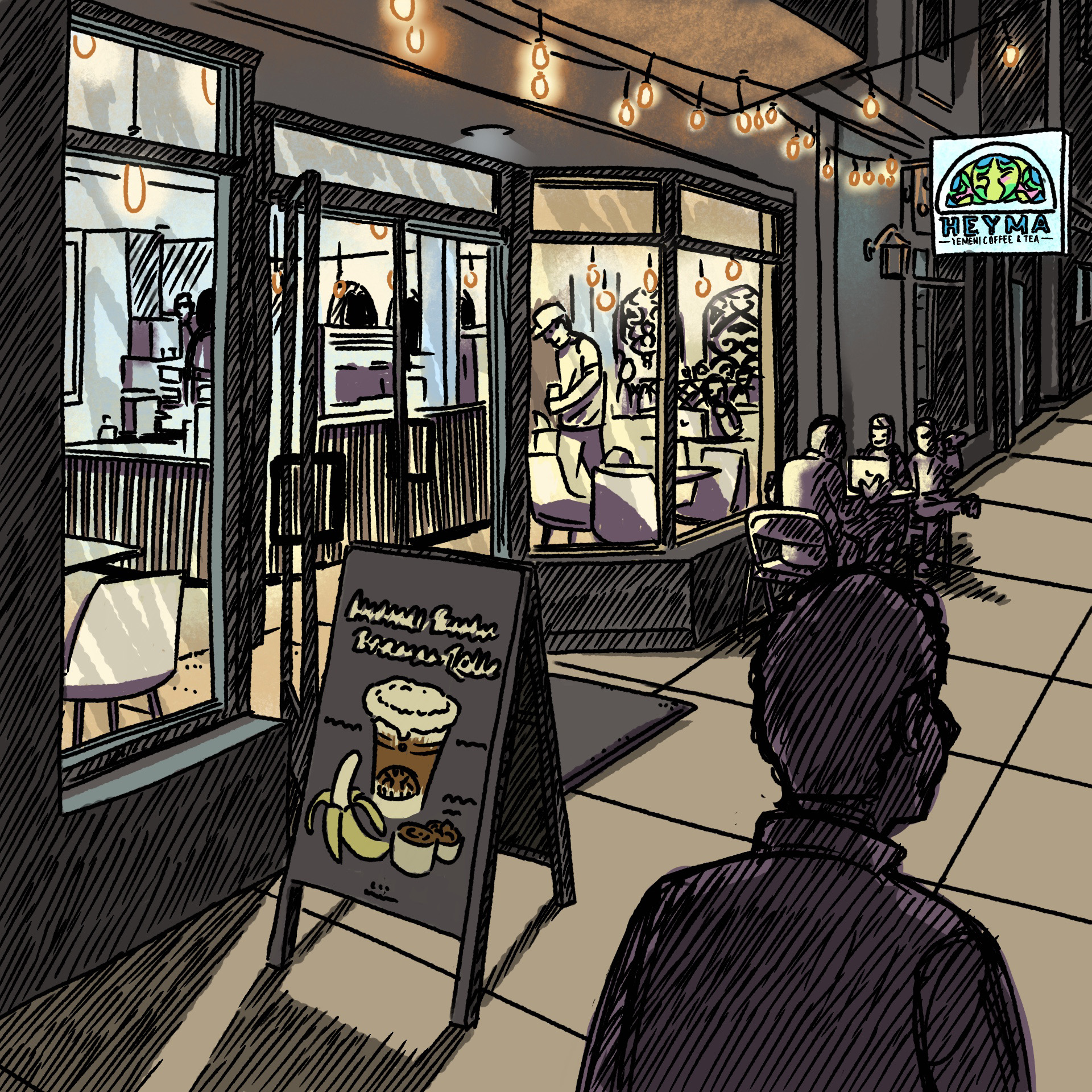
The Midnight Diners is a regular collaboration between KQED food editor Luke Tsai and graphic novelist Thien Pham. Follow them each week as they explore the hot pot restaurants, taco carts and 24-hour casino buffets that make up the Bay Area’s after-hours dining scene. This week they were joined by guest artist Wahab Algarmi, whose debut middle grade graphic novel, Almost Sunset, is available in bookstores now.
In a college town like Berkeley, a coffee shop open past 10 o’clock at night is a precious commodity. These days, night owl students looking for a place to caffeinate and park their laptops for a couple of hours are more than likely to find themselves at one type of cafe in particular: a Yemeni coffee house.
So when we dropped by Heyma Yemeni Coffee on a late Sunday night shortly before finals week at UC Berkeley, it was both surprising and completely unsurprising to see how packed the place was, with a throng of undergrads waiting in line to buy blistering-hot cups of coffee infused with cardamom and maybe a honey-soaked pastry for good measure.
If you’ve been paying attention to the local coffee scene, you might know that Heyma is one of the dozen or so Yemeni coffee shops that have opened in the Bay Area, all in the past three years, at a rate that only seems to be accelerating. They all have a similar vibe, with their Arab design elements and menus heavy on spiced coffees and the same handful of Yemeni pastries.
At Heyma, the design is the first thing you notice — the cozy little alcoves lined with black-and-gold arabesque and, in the center of the room, the traditional U-shaped Majlis sofa, where a couple of college kids were sprawled out with their MacBooks. Still, at first glance, you might mistake the place for any other trendy Gen Z cafe or boba shop. The emphasis of the branding and the menu is skewed toward the kinds of flashy drinks and desserts currently popular on TikTok and Instagram: There are matcha lattes and Redbull mojitos, and we spotted at least three or four variations on Dubai chocolate.

At the same time, it’s clear that this is a place of real cultural pride. Just inside the entrance, a large sign summarizes the long history of coffee in Yemen, where 15th century Sufi monks were believed to be the first people to cultivate it as a beverage. Above the counter, a poem in untranslated Arabic — “Love and Coffee,” by the Yemeni poet Mutaher Ali Al-Eryani — celebrates the joy of the coffee harvest. At the bottom of the digital menu board, it says simply, “Free Palestine.”

